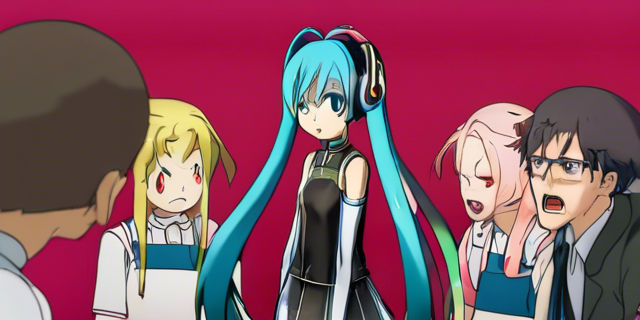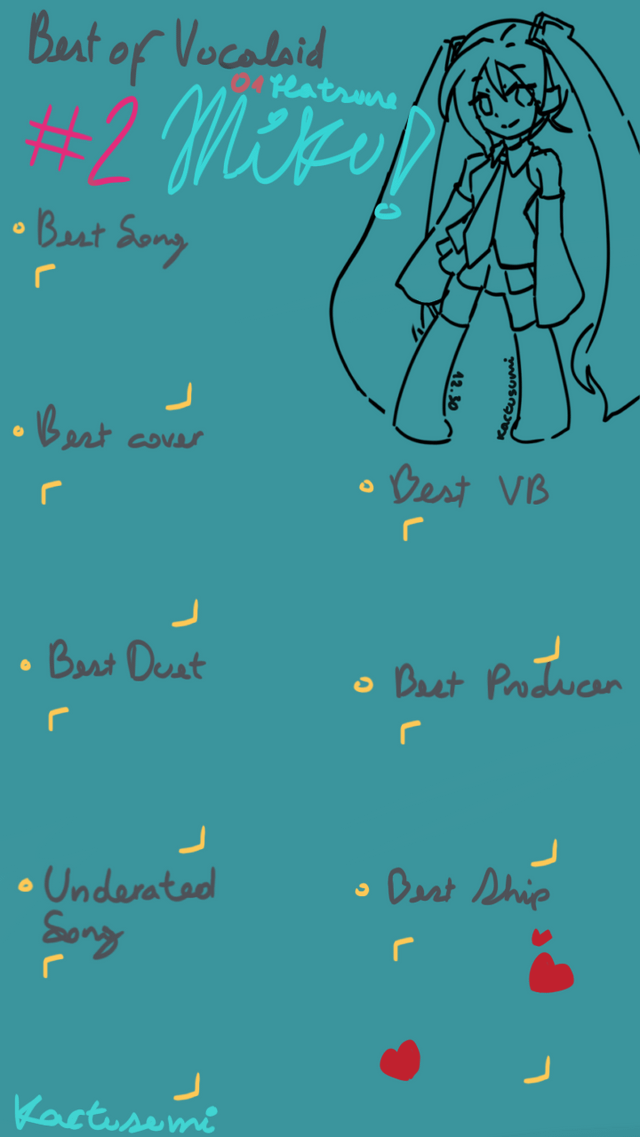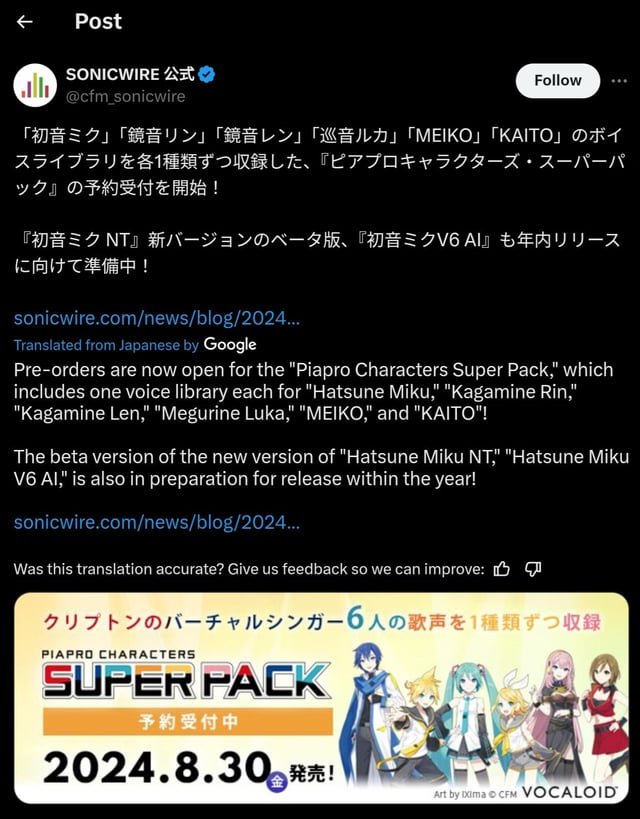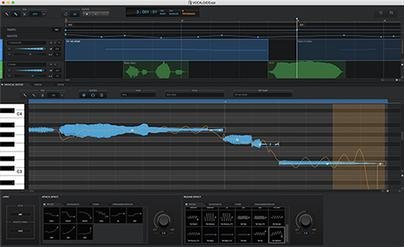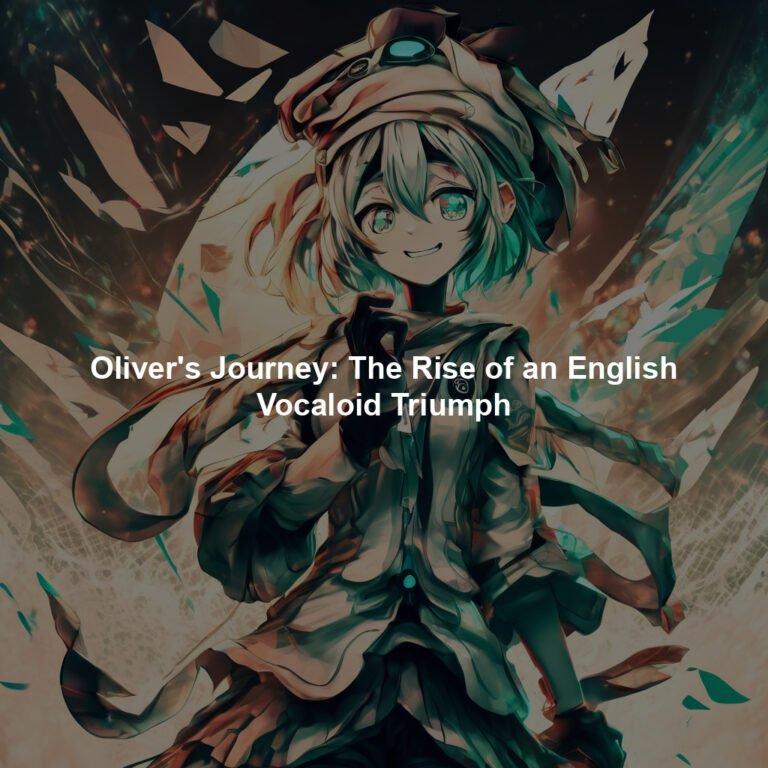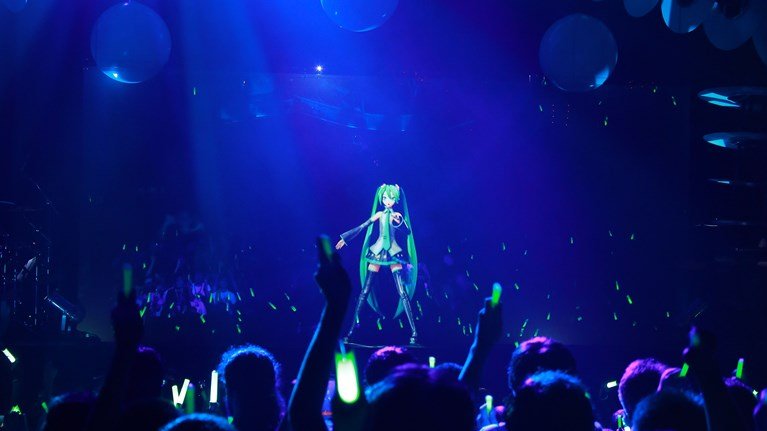Vocaloid is a popular software for creating synthesized singing. It has a huge fan base.
But, there’s a side of Vocaloid that is rarely discussed. The Vocaloid controversy involves debates over creativity, authenticity, and ethics. Artists and fans clash over the use of digital voices versus human singers. Some say Vocaloid is a tool for artistic freedom.
Others argue it diminishes the value of real singers. This divide has grown as Vocaloid’s popularity increases. Many feel passionate about the issue but stay silent due to fear of backlash. In this post, we will explore the layers of this controversy. Our goal is to understand why it sparks such strong emotions. Let’s dive into the debate that nobody wants to talk about.

Credit: www.reddit.com
Cultural Impact
The world of Vocaloid has stirred significant cultural shifts. These virtual singers have captivated audiences globally. Their influence extends far beyond music, affecting various aspects of culture and society.
Influence On Music Industry
Vocaloid has changed how music is produced and consumed. Artists can now create music without traditional singers. This technology opens up new possibilities for music creation.
Music producers use Vocaloid to experiment with different genres and styles. This innovation has led to a surge in unique, diverse music. The technology has democratized music production, allowing anyone with a computer to create songs.
Record labels have taken notice of Vocaloid’s potential. Some have signed virtual singers as official artists. These virtual artists have even performed at live concerts, drawing large crowds.
- New music genres
- Democratized production
- Virtual concerts
Global Reach And Fandom
Vocaloid has a passionate fanbase worldwide. Fans create fan art, write stories, and even make their own music using Vocaloid software. This global community shares a common love for virtual singers.
The internet has played a crucial role in spreading Vocaloid culture. Platforms like YouTube and Nico Nico Douga host countless Vocaloid videos. These platforms connect fans from different countries, fostering a sense of community.
Fans organize events and conventions to celebrate Vocaloid. These gatherings draw thousands of attendees. They feature live performances, merchandise, and fan activities.
- Fan art and stories
- Online platforms
- Events and conventions
This global reach has made Vocaloid a cultural phenomenon. It has bridged gaps between different cultures through music and creativity.
Technological Aspects
In the world of music, Vocaloid has sparked many debates. The technology behind it is both fascinating and controversial. Let’s dive into the technological aspects that fuel this discussion.
How Vocaloid Works
Vocaloid uses advanced software to create realistic singing voices. It breaks down human singing into tiny sound fragments. These fragments are recorded from real singers. The software then pieces these fragments together to form new songs.
Users can control pitch, tone, and timing with precision. This allows for a wide range of vocal expressions. The process is intricate and requires both technical skill and creativity.
Advancements In Ai Music
AI music has come a long way in recent years. Early versions of Vocaloid were limited in scope. Today’s AI can mimic human emotions more convincingly. New algorithms analyze vast amounts of data. This helps in creating more realistic voices.
AI can also generate melodies and harmonies. It does this by learning from existing music. This reduces the time and effort needed to produce new songs. The technology is becoming smarter and more intuitive.
Here is a comparison of the advancements in AI music:
| Feature | Early Vocaloid | Modern AI |
|---|---|---|
| Voice Realism | Basic | Advanced |
| Emotion Mimicry | Limited | High |
| Melody Creation | Manual | Automated |
These advancements are impressive. But they also raise ethical questions. The line between human and machine music is blurring. This is the core of the Vocaloid controversy. It challenges our understanding of creativity and artistry.
Ethical Concerns
The world of Vocaloid has captivated many with its unique blend of technology and art. Yet, it also brings up important ethical concerns. These concerns revolve around the nature of music created by Vocaloid and its impact on human artists. Let’s dive into these topics to understand the debate better.
Authenticity In Music
One of the main concerns is the authenticity of music produced by Vocaloid. Human emotions and experiences shape traditional music. With Vocaloid, a computer generates the sound. Critics argue that this lacks the depth and soul of human-created music.
Supporters of Vocaloid counter this by highlighting the creativity of Vocaloid producers. They argue that human input and creativity still play a significant role. Yet, the debate continues about what defines authentic music.
Impact On Human Artists
Another major concern is the impact of Vocaloid on human artists. Some fear that Vocaloid could replace human singers. This could limit opportunities for new and existing artists.
Consider the following points:
- Vocaloid can produce music quickly and cheaply.
- Producers can create a perfect sound without vocal flaws.
- Listeners might prefer the polished sound of Vocaloid.
These factors could lead to a reduction in demand for human singers. This impact might be significant in genres where Vocaloid is popular.
On the flip side, some believe Vocaloid can enhance human creativity. It can serve as a tool for composers who lack vocal skills. Yet, this perspective does not entirely dismiss the potential negative impacts on human artists.

Credit: www.reddit.com
Commercial Exploitation
The world of Vocaloid is fascinating. Yet, there’s a darker side. Commercial exploitation is a topic that often gets overlooked. Companies see Vocaloid characters as profit machines. This focus can sometimes overshadow the art itself.
Profit Motives
Profit motives drive many decisions in the Vocaloid industry. Companies aim to maximize revenue. This often leads to excessive commercialization. The original creators may feel sidelined. The focus shifts from creativity to money-making. Fans notice this shift. It can create a rift between the community and the companies.
Merchandising And Branding
Merchandising and branding are huge in the Vocaloid world. Vocaloid characters appear on various products. From T-shirts to keychains, the list is endless. This can dilute the character’s original essence. Some fans feel that the characters lose their unique charm. They become just another product on the shelf.
Branding strategies also play a big role. Companies often rebrand characters to appeal to wider audiences. This can change the character’s initial personality. Long-time fans may find this upsetting. They cherish the character’s original traits and feel betrayed.
Overall, commercial exploitation has many layers. Profit motives, merchandising, and branding all contribute. The focus should shift back to the art. That’s what made Vocaloid special in the first place.
Gender And Identity Issues
The world of Vocaloid is fascinating. But it has its share of controversies. One of the most pressing issues involves gender and identity. This topic is often overlooked. Yet, it deserves our attention. Let’s explore the complexities surrounding gender and identity in Vocaloid.
Representation In Vocaloid Characters
Vocaloid characters are virtual singers. They have distinct personas. Yet, their representation raises questions. Many characters are designed with exaggerated features. This often reinforces gender stereotypes. Female Vocaloids usually have high-pitched voices. They wear revealing outfits. Male Vocaloids, on the other hand, have deeper voices. They often appear in more conservative clothing.
These portrayals can affect fans’ perceptions. Young audiences might adopt these stereotypes. It can shape their understanding of gender roles. The lack of diversity is another concern. Most Vocaloid characters are slim and fair-skinned. This limited representation can be harmful. It excludes various body types and skin tones.
Cultural Stereotypes
Vocaloid characters often reflect cultural stereotypes. This is particularly evident in their appearances and behaviors. For instance, some characters embody traditional Japanese aesthetics. They wear kimonos or other cultural attire. This can seem like cultural appreciation. But it can also perpetuate stereotypes.
There’s also the issue of cultural appropriation. Some Vocaloid designs borrow elements from various cultures. They do this without proper context or respect. This can be offensive to those cultures. It reduces rich traditions to mere fashion statements.
Furthermore, the global reach of Vocaloid amplifies these issues. Fans from different backgrounds engage with these characters. This can spread stereotypes across borders. It highlights the need for more thoughtful character design.
In summary, gender and identity in Vocaloid are complex topics. They involve representation and cultural stereotypes. These issues need more discussion. They impact how fans perceive and relate to these virtual idols.
Credit: www.tiktok.com
Fan Community Dynamics
The Vocaloid community is a vibrant and creative space. Enthusiasts come together to share their love for virtual singers. Yet, beneath the surface lies a complex web of interactions. These dynamics shape the fan experience in unexpected ways.
Fan Creations And Collaborations
Fan creations are the lifeblood of the Vocaloid community. Many fans express themselves through art, music, and videos. Collaborations are also common. Fans often team up to produce unique works. These projects bring together diverse skills and ideas.
Some popular forms of fan creations include:
- Original songs and remixes
- Illustrations and fan art
- Animated music videos
- Cosplay and live performances
Such collaborations foster a sense of belonging. Fans feel connected through shared passions. This drives the community forward. Creative synergy becomes a powerful force. It fuels the production of high-quality content.
Tensions Within The Community
Despite the creativity, tensions do exist. These can arise from various sources. One common issue is credit disputes. Fans sometimes feel their contributions are overlooked. This can lead to conflicts and hurt feelings.
Another source of tension is differing opinions. Fans have diverse tastes and preferences. This can cause disagreements over which Vocaloid is best. Or what style of music is more appealing.
Common areas of tension include:
- Credit and recognition for fan works
- Differences in musical tastes
- Debates over character portrayals
- Exclusive vs. inclusive community practices
These tensions can impact the community’s atmosphere. They may create divisions among fans. Yet, addressing these issues can lead to growth and understanding. Open dialogue and mutual respect are key. They help maintain a positive and welcoming environment.
Future Of Vocaloid
The future of Vocaloid is a hot topic among fans and critics. As technology evolves, Vocaloid’s potential seems limitless. But the path ahead is fraught with challenges and opportunities. Let’s delve into what lies ahead for this digital singing sensation.
Potential Developments
Vocaloid technology is constantly improving. Voicebanks are getting more realistic. Developers aim to create voices indistinguishable from human singers. Artificial intelligence can now add emotion and nuances to performances. This makes the experience more engaging for listeners.
Another potential development is cross-platform integration. Vocaloid characters could appear in virtual reality concerts. They might also interact with fans on social media. These advancements will make Vocaloid more accessible and immersive.
Long-term Cultural Effects
The impact of Vocaloid on culture is profound. Vocaloid has created a unique music genre. It has influenced fashion, art, and even language. As Vocaloid grows, its cultural footprint will expand.
Vocaloid could also change the music industry. Traditional artists might collaborate with Vocaloid characters. This could lead to new musical styles and trends. The line between human and digital performers will blur.
In the long term, Vocaloid may redefine what it means to be an artist. The technology allows anyone to create music. This democratizes the music-making process. It opens up new possibilities for creativity and expression.
Frequently Asked Questions
What Is The Vocaloid Controversy?
The Vocaloid controversy revolves around the ethical implications of using synthesized voices. It raises questions about originality and artist rights. Many argue it overshadows human talent.
Why Do People Criticize Vocaloid?
Critics argue that Vocaloid undermines human singers by replacing them with synthetic voices. They believe it devalues the emotional aspect of music.
How Does Vocaloid Impact The Music Industry?
Vocaloid impacts the music industry by democratizing music creation. It allows anyone to produce songs without needing a human singer.
Are There Ethical Concerns With Vocaloid?
Yes, there are ethical concerns with Vocaloid. Issues include intellectual property rights and the authenticity of music created with synthesized voices.
Conclusion
The Vocaloid controversy sparks deep discussions in the music world. Opinions vary widely. Some love the innovation. Others fear it threatens human artistry. It’s a debate worth having. Vocaloid technology isn’t going away soon. Understanding both sides is crucial. Whether you agree or disagree, the conversation continues.
Stay informed and engaged. The future of music might just depend on it.
